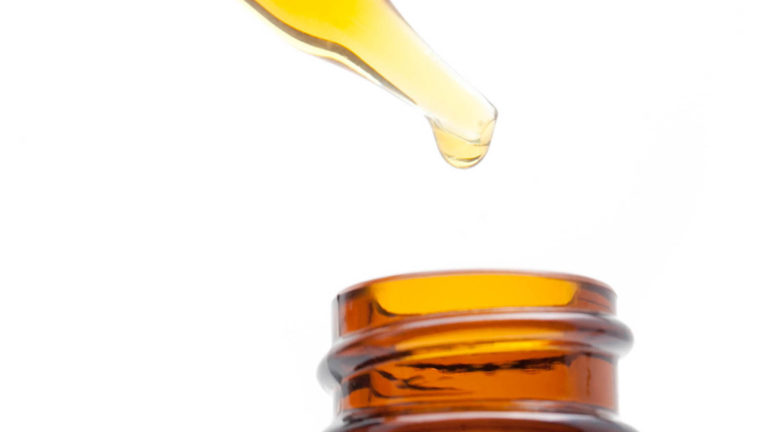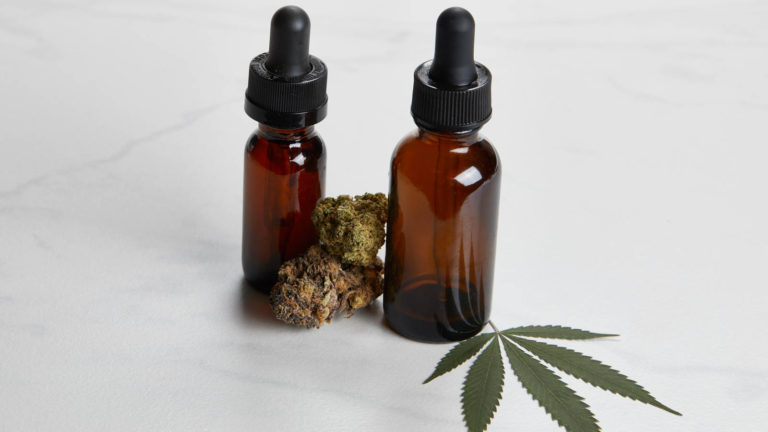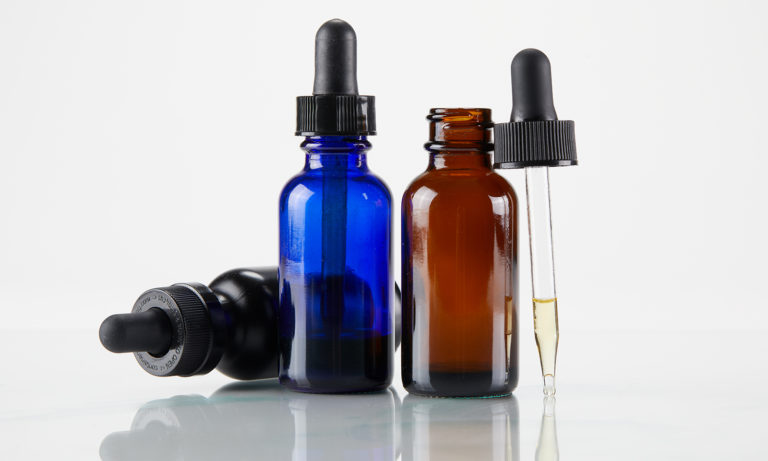Yes, cannabidiol (CBD) oil and other CBD products are legal and widely available in Pennsylvania. The state legalized medical marijuana and launched its Industrial Hemp Pilot Program in 2016. In 2016, Governor Tom Wolf signed Senate Bill 3, establishing a medical marijuana program, including a Medical Marijuana Program Fund, a Medical Marijuana Advisory Board, and a research program. It's one of many states that began writing and rewriting state law following the signing of the Hemp Farming Act of 2018, which legalized hemp and hemp-derived products on a federal level.
Hemp and hemp-derived products are legal in Pennsylvania and overseen by the state's Department of Agriculture. Pennsylvania has carefully detailed rules about growing hemp, from seed procurement to crop testing, but on anything other than that, it simply says citizens are responsible for following state and federal laws.
What is CBD?
CBD is a non-intoxicating cannabinoid found in cannabis. After tetrahydrocannabinol (THC), cannabidiol (CBD) is the second-most abundant cannabinoid in the plant and has many potential therapeutic benefits, including anti-inflammatory, analgesic, anti-anxiety, and seizure-suppressant properties. CBD can be sourced from both marijuana plants and hemp plants, which are legal in most countries as they contain minuscule amounts of THC.
 Photo by: Gina Coleman/Weedmaps
Photo by: Gina Coleman/WeedmapsImage lightbox

Combine THC and CBD to fully employ the entourage effect; THC and CBD work hand-in-hand to amplify each others' effects.
Why is CBD sometimes illegal?
The 1970 Federal Controlled Substances Act categorized all types of cannabis, including hemp, as Schedule I, defined as a substance with a high potential for abuse, no accepted medical use, and a likelihood for addiction. The act prevented further research that may have shed light on beneficial uses for cannabis.
But this started to change with the passage of the 2014 Hemp Farming Bill, which recognized the difference between hemp, a low-THC, high-CBD type of cannabis, and marijuana. Hemp was defined as having less than .3% THC by weight, while marijuana has more than .3% THC. The Hemp Farming Act of 2018, which was signed by President Donald Trump on Dec. 20, 2019, officially removed hemp from the list of Controlled Substances, though marijuana is still illegal in some states and is still classified as Schedule I, making it illegal at the federal level. CBD derived from marijuana plants is, therefore, still illegal while CBD from hemp is legal but governed by rules that the United States Department of Agriculture (USDA) has yet to disseminate.
The 2018 Hemp Farming Bill also granted the U.S. Food and Drug Administration (FDA) with the authority to regulate CBD labeling, therapeutic claims, and use as a food additive. Despite the passage of the 2018 Farm Bill, the FDA has taken the stance that even hemp-derived CBD may neither be added to food and beverages nor marketed as dietary supplements. While the FDA has begun a process of re-evaluating that stance, it has yet to revise its rules or specifically regulate CBD products, leading to further confusion. The FDA has been strict when it comes to health claims and content that could be construed as medical advice about CBD.
While the Farm Bill did legalize hemp, its production, and the sale of any product derived from it, including CBD, it is still highly regulated. The bill also allows some states to make their own rules for CBD cultivation and sale. States may also try to regulate CBD in food, beverages, dietary supplements, and other products instead of waiting for final FDA rules.
The FDA released guidelines in March of 2020 on the regulation of cannabis-derived and hemp-derived CBD products.
Pennsylvania CBD laws
In July 2016, Pennsylvania lawmakers passed House Bill 967, legalizing hemp cultivation and processing, including hemp-derived CBD production. It was one of many states that moved to regulate hemp production as an agricultural commodity in the wake of the 2014 Farm Bill. Later amendments to the state's agricultural code removed requirements for hemp growers to be part of a university-affiliated research program.
HB 967 set the standard for hemp and marijuana at .3% or less THC, just like the federal statute. It designated the Pennsylvania Department of Agriculture (PDA) to oversee all hemp-related matters. PDA has since submitted its hemp cultivation program to the USDA for approval.
 Photo by: Gina Coleman/Weedmaps
Photo by: Gina Coleman/WeedmapsImage lightbox

Hemp growers must be licensed by the PDA. Licenses are $600 per year for up to five locations, with additional fees for more locations; the state doesn't limit the number of locations or acreage. Licenses will not be granted to anyone convicted of a drug felony in the 10 years prior to application. Growers who unintentionally violate the law will be given an opportunity to remedy the charges against them. If it happens three times in a five-year period, the grower is banned from producing hemp for five years. Growers who intentionally violate the law will be reported to law enforcement.
Inspectors are permitted to visit farms and choose plants for testing. Plants that have more than .3% THC but less than 1% will be retested and possibly destroyed. THC levels above 1% result in immediate destruction and investigation by law enforcement.
Processors are not required to be licensed unless they are processing hemp or CBD into food products. In that case, the processor must register with the PDA's Bureau of Food Safety. The only guidance issued by the bureau is that food purveyors must comply with federal law and guidelines from the FDA.
The state's Department of Agriculture specifies that anyone who processes hemp into food must be licensed as a food establishment, though it deferred to federal legislation, specifically FDA rules, on the subject of CBD intended for human consumption.
Pennsylvania CBD possession limits
There are no limits on possession of hemp-derived CBD products in Pennsylvania. Patients registered with the state's medical marijuana program are permitted to possess a 30-day supply of medical marijuana.
 Photo by: Gina Coleman/Weedmaps
Photo by: Gina Coleman/WeedmapsImage lightbox

Where to buy CBD in Pennsylvania
Vape and smoke shops in Pennsylvania often sell hemp-derived CBD in a variety of forms. Pharmacies and health food stores may also sell hemp CBD products. CBD derived from cannabis is also available from medical marijuana dispensaries, but only to qualified patients with a doctor's recommendation.
Shopping online for hemp-derived CBD products is an option since the US Postal Service has confirmed that legal CBD products may be shipped by mail. CBD products can usually be found online at the websites of specific brands. You can find out more about where to buy CBD oil on Weedmaps.
How to read CBD labels and packaging
The FDA currently does not allow CBD-infused food, drinks, or dietary supplements to be sold, and hasn't reached a final conclusion on regulating hemp-derived CBD products. While the FDA slowly and cautiously approaches making new regulations for CBD products, the gap between regulated products and anything goes grows wider, leaving consumers at risk of buying poor-quality products. When buying CBD products, look for the following on the label:
- Amount of active CBD per serving.
- Supplement Fact panel, including other ingredients.
- Net weight or volume.
- Manufacturer or distributor name.
- Suggested use.
- Full spectrum, broad spectrum, or isolate.
- Batch or date code.
One of the most important things to pay attention to is whether a CBD product is full-spectrum, broad-spectrum, or isolate.
Full-spectrum means that the CBD has been extracted from a hemp plant along with all other cannabinoids and terpenes, including whatever trace amounts of THC the plant may have produced. Consuming full-spectrum CBD may yield better results thanks to the entourage effect, a phenomenon in which the mixture of cannabinoids and terpenes work together to produce a more pleasant experience.
Broad-spectrum means that the product contains CBD and terpenes, but has undergone additional processes to strip out any THC.
Finally, isolate is a product that has gone through more intensive processing to remove all compounds except for CBD. Consuming isolate may produce different effects than full-spectrum or broad-spectrum CBD, as these products do not produce the entourage effect.

